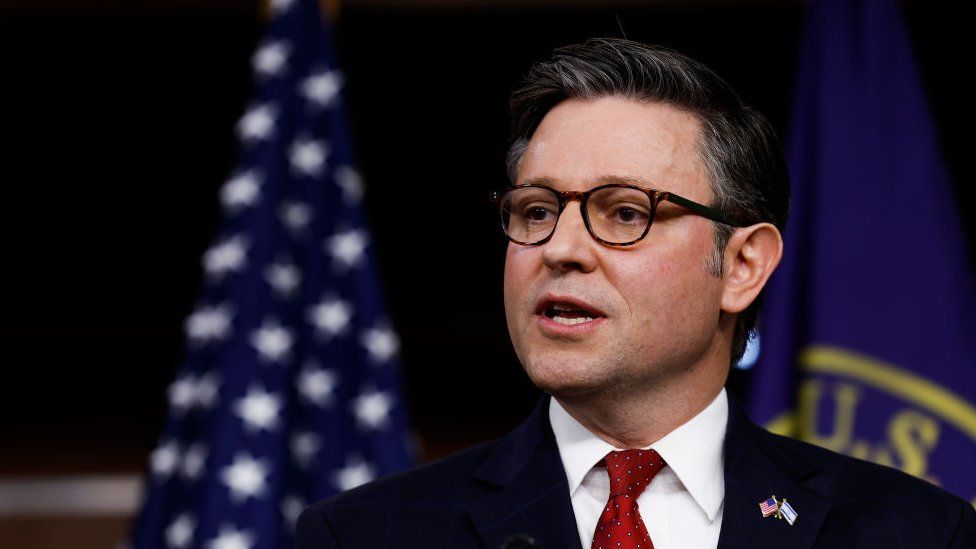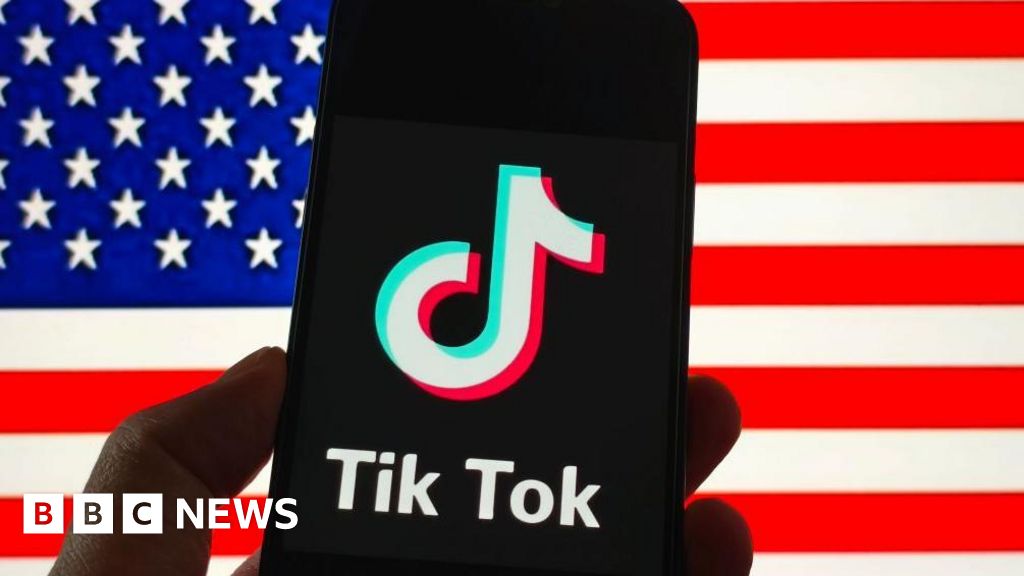ARTICLE AD BOX
 Image source, Getty Images
Image source, Getty Images
House Speaker Mike Johnson proposed a two-tiered plan to avoid a government shutdown before funding runs out on 17 November
By Madeline Halpert
BBC News, New York
The US House of Representatives has passed a short-term funding bill in a bid to avert a government shutdown that looms on Friday, despite a sizeable Republican revolt.
The measure, proposed by new House Speaker Mike Johnson in his first major test, was approved by 336 votes to 95.
It keeps federal agencies open at current spending until mid-January.
The stopgap measure must be approved by the Senate and President Joe Biden before it takes effect.
If lawmakers fail to pass a plan before government funding expires on 17 November, tens of thousands of federal employees would be off work without pay as soon as next week and various government services would be abruptly suspended.
The vote required a two-thirds majority to pass. On Tuesday night, 93 Republicans opposed the measure.
But House Democrats sided with Mr Johnson, citing the need to keep the government functioning.
In a statement released before the vote, the Democratic leadership said it would support the resolution because it was "devoid of harmful cuts and free of extreme right-wing policy riders".
"We have consistently made clear that a government shutdown would hurt the economy, our national security and everyday Americans during a very fragile time and must be avoided," the House Democrats said.
The vote marked the first major test of leadership for the new Republican House Speaker, Mr Johnson.
His unusual two-tiered plan leaves parts of the government - including the Food and Drug Administration, Veterans Affairs and the Department of Transportation - funded until a January deadline, while others would be funded up to early February.
The staggered dates have been agreed to give lawmakers time to prepare longer-term spending bills and also to address debate over wartime aid to Ukraine and Israel.
Mr Johnson's continuing resolution is a so-called "clean" bill with no spending cuts, policy provisions or other strings attached.
The bill has faced criticism from the conservative House Freedom Caucus, in part because it does not include the steep spending cuts the group had been advocating for.
The same type of pushback from right-wing Republicans led to the removal of Mr Johnson's predecessor, former House Speaker Kevin McCarthy, after he relied on Democratic votes to pass a government funding bill in late September.
Speaking ahead of Tuesday's vote, Mr Johnson said he wanted "to cut spending right now", but argued that his party didn't have the votes for such a move.
Texas congressman Chip Roy, an influential conservative, told reporters the House Freedom Caucus was "trying to give the speaker a little grace", but argued that "today's a mistake, right out of the gate".
The Republican party has experienced a tumultuous two months after eight right-wing Republicans voted to oust Mr McCarthy.
Tensions flared before the vote on Tuesday, when right-wing congressman Tim Burchett of Tennessee accused Mr McCarthy of "elbowing" him in the back while he stood in the halls of Congress.
The incident led another Republican lawmaker, Matt Gaetz, to file an ethics complaint.

 1 year ago
57
1 year ago
57








 English (US) ·
English (US) ·